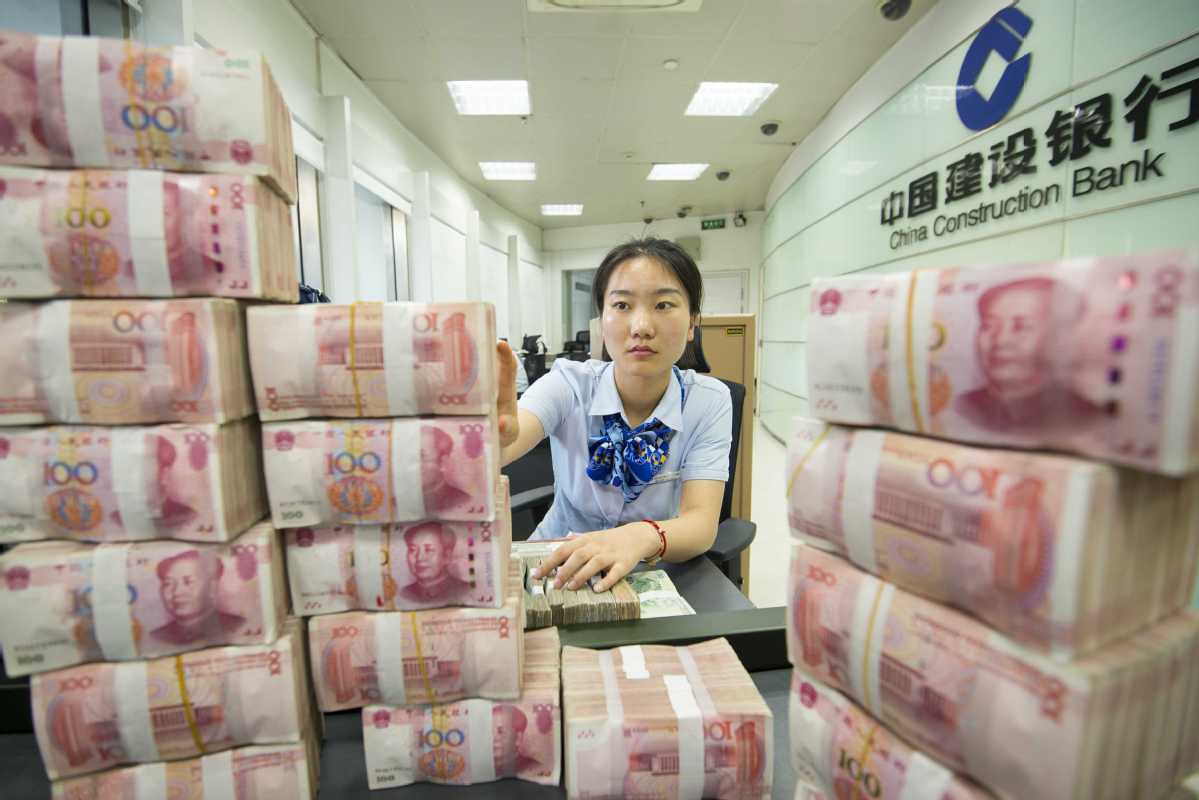More fund injection to boost growth


Local govts urged to speed up bond issuance for infrastructure projects
Local governments will join commercial banks to accelerate fund injection into infrastructure projects, a way for the country's policymakers to step up the fight against economic downside risks in the second half of this year.
A guideline urging local governments to speed up bond issuance for special purposes was released on the Ministry of Finance website on Tuesday. It requires provincial-level and authorized municipal governments to finish no less than 80 percent of the 1.35 trillion yuan ($196.2 billion) special bond quota by the end of September.
The ministry called for the fulfillment of the remaining 20 percent in October. In the first half, only 367.3 billion yuan in special bonds were issued, less than 50 percent of the annual quota, according to data from the ministry.
The funds raised from special bonds should be used effectively and injected into targeted projects as soon as possible, the ministry said, as the measure is aimed to accelerate project construction, stabilize investment and expand domestic demand.
The guideline came a few hours after the country reported a record-low fixed asset investment growth figure in the first seven months, which retreated to 5.5 percent from 6 percent for the first six months, according to the National Bureau of Statistics on Tuesday.
The weaker-than-expected investment has increased market concerns on economic slowdown pressure, although the country's monetary authority has already pushed commercial banks to increase lending since the second half.
In July, the new yuan loans rose to 1.45 trillion yuan, which was higher than the market's expectation of around 1.2 trillion yuan, and also increased by 623.7 billion yuan from a year earlier, said central bank data released on Monday.
Mainly because of the strong credit growth, the growth of broad money supply, or M2, accelerated to 8.5 percent last month from 8 percent by the end of June, according to the official data.
However, the total social financing, a broad measure of funds that non-financial firms and households get from the financial system, slipped slightly to 1.04 trillion yuan in July, down from 1.18 trillion yuan a month earlier.
"It indicated that commercial banks have not yet increased long-term lending to non-financial enterprises and only boosted short-term interbank lending, as the banks lack incentives to lend out amid weakening economic outlook," said Ren Zeping, chief economist of Chinese property developer Evergrande.
The issuance of local government special bonds, which will raise money mainly for the construction of railways and expressways, will be another way to encourage banks' fund injections, as they are the major holders of the bonds, said experts.
According to the public bond rating materials, large State-owned and joint-share commercial banks are the underwriters of the special bonds.
"It also means that commercial banks could use local government bonds as collateral, to receive more liquidity from the central bank," such as through the Medium-Term Lending Facility regime - an open market tool innovated by the central bank to inject liquidity to commercial banks, said an analyst familiar with the matter.
The country has highlighted efforts to keep employment, the financial sector, foreign trade, foreign and domestic investments, and expectations stable in the second half of the year, according to a key meeting of the Political Bureau of the Communist Party of China Central Committee held on July 31.
"We expect a proactive fiscal policy and prudent monetary policy will work together in the second half to stabilize economic growth," said Wen Bin, a researcher at China Minsheng Bank.




































